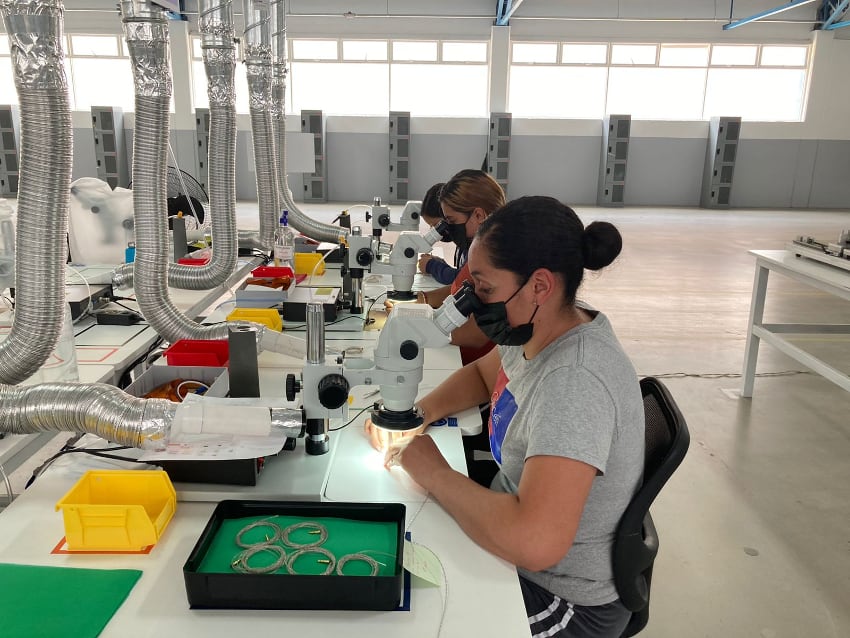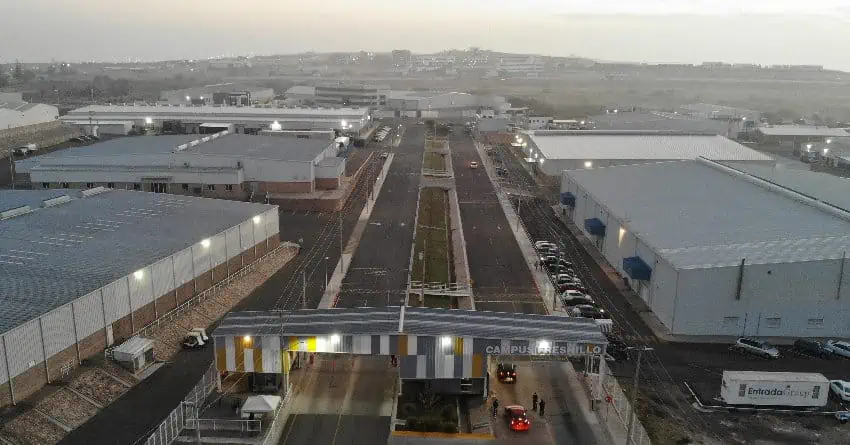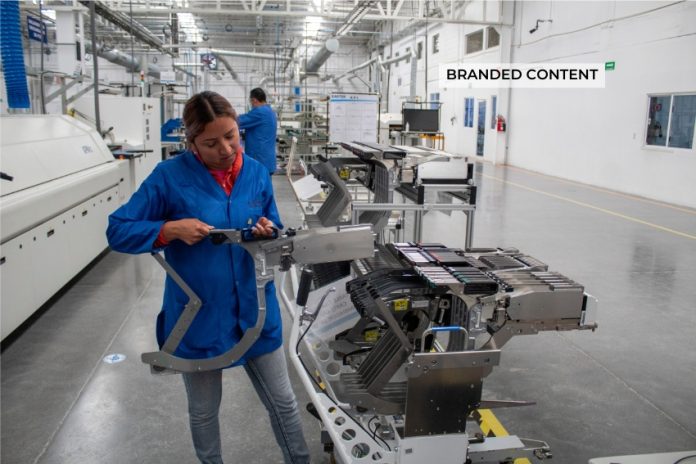Johnson & Johnson, Medtronic, GE HealthCare, Philips and Kimberly-Clark. They are just a few of the more than 2,000 companies that manufacture medical devices in Mexico, the world’s leading supplier of such equipment to the United States.
Foreign investment in the sector – measured in the billions of dollars over the past 15 years – is significant for the same reasons that manufacturing any type of product in Mexico is potentially a good idea: proximity to the United States, the presence of an educated and motivated workforce, competitive labor costs and low or tariff-free trade with the U.S. and Canada.
Companies operating in Mexico’s medical device manufacturing industry, which was worth more than US $16 billion in 2022, can tap into a growing pool of qualified workers, as thousands of students complete their studies in related fields every year. In state-of-the-art plants, those companies make a wide range of medical devices, both big and small, that meet all U.S. standards.
Whether it’s high-quality prosthetics or pacemakers, dilators or defibrillators, or nearly any other medical device your company is seeking to make at an affordable cost, Mexico could be the answer you’re looking for.
The Mexico advantage
There are many locations that are a strong fit for companies thinking about establishing a presence on the doorstep of the world’s largest economy. One region that is already home to many foreign manufacturers and is actively seeking to attract companies that produce medical devices is the Bajío. This region includes parts of several states including Guanajuato, Jalisco, Querétaro, and Aguascalientes.

Guanajuato, where numerous small and medium-sized medical device manufacturers already have plants, is one of the most attractive options for companies thinking about producing for the medical device and life sciences sector, considered a strategic priority in Mexico. The state is currently governed by the business-friendly National Action Party and has been a manufacturing powerhouse for decades.
Recently, to spur additional growth in the medical device sector, the state launched Guanajuato’s Life Innovation & Technologies Cluster, comprised of international and domestic medical device manufacturers, industry services providers, related associations and educational institutes. Entrada Group, along with a handful of select other companies, is a founding member of this new cluster.
Entrada Group, a United States-based company, already has a manufacturing campus in Celaya, Guanajuato, and can facilitate the entire process of setting up and operating a medical device production plant in Mexico, helping companies save both time and money.
According to John Paul McDaris, Entrada’s director of business development, Celaya offers a range of benefits to foreign manufacturers, including those that specialize in the production of medical devices.

These benefits include the presence of over 25 tertiary education institutes that offer degrees in relevant fields; the availability of an experienced manufacturing labor force; proximity to the expat friendly cities of Querétaro and San Miguel de Allende; and transport infrastructure that allows companies to get their product to market quickly.
Entrada’s Celaya campus is only around 100 kilometers from the Querétaro airport and a similar distance from the Bajío airport, which serves a growing number of international and domestic destinations. Better yet, highways connect Guanajuato to the rest of Mexico and beyond, facilitating the transport of both finished products and company personnel.
Celaya’s location in the Bajío places it within the Mexico City-Guadalajara-Monterrey triangle, which is home to a significant percentage of Mexico’s overall population, and also includes cities such as Aguascalientes, Zacatecas and San Luis Potosí.
Foreign manufacturers that establish a presence in the city would therefore be in an advantageous position to sell their products into the growing domestic market for medical devices in Mexico, potentially opening up a revenue stream to complement income generated from exports to the United States or other foreign countries.
Entrada Group also has a manufacturing campus in Zacatecas, which could suit companies that want to set up operations even closer to the United States border.
The alternative to China
As McDaris further notes, many companies that currently make medical devices in China are seeking alternatives due to a range of risk factors there, including supply chain delays, rising costs, intellectual property concerns and tariffs. Mexico is a viable option for such companies, even if they choose to maintain a presence in China.
“For medical device-makers, a diverse manufacturing footprint is a big advantage,” McDaris says. “By looking at other production locations to complement China, companies can reduce risk, be closer to customers and be prepared for future unknowns.”
McDaris believes there’s a compelling economic case for manufacturing companies focused on the North American market to question where they make their products.
“It has arguably never been more advantageous to shift some or all of production away from stalwarts like China to a viable alternative such as Mexico,” he says.
“Locating production closer to current and potential customers facilitates commerce. By working in similar geographies and overlapping time zones, producers can shorten lead times, improve service delivery and offer greater levels of customization.”
